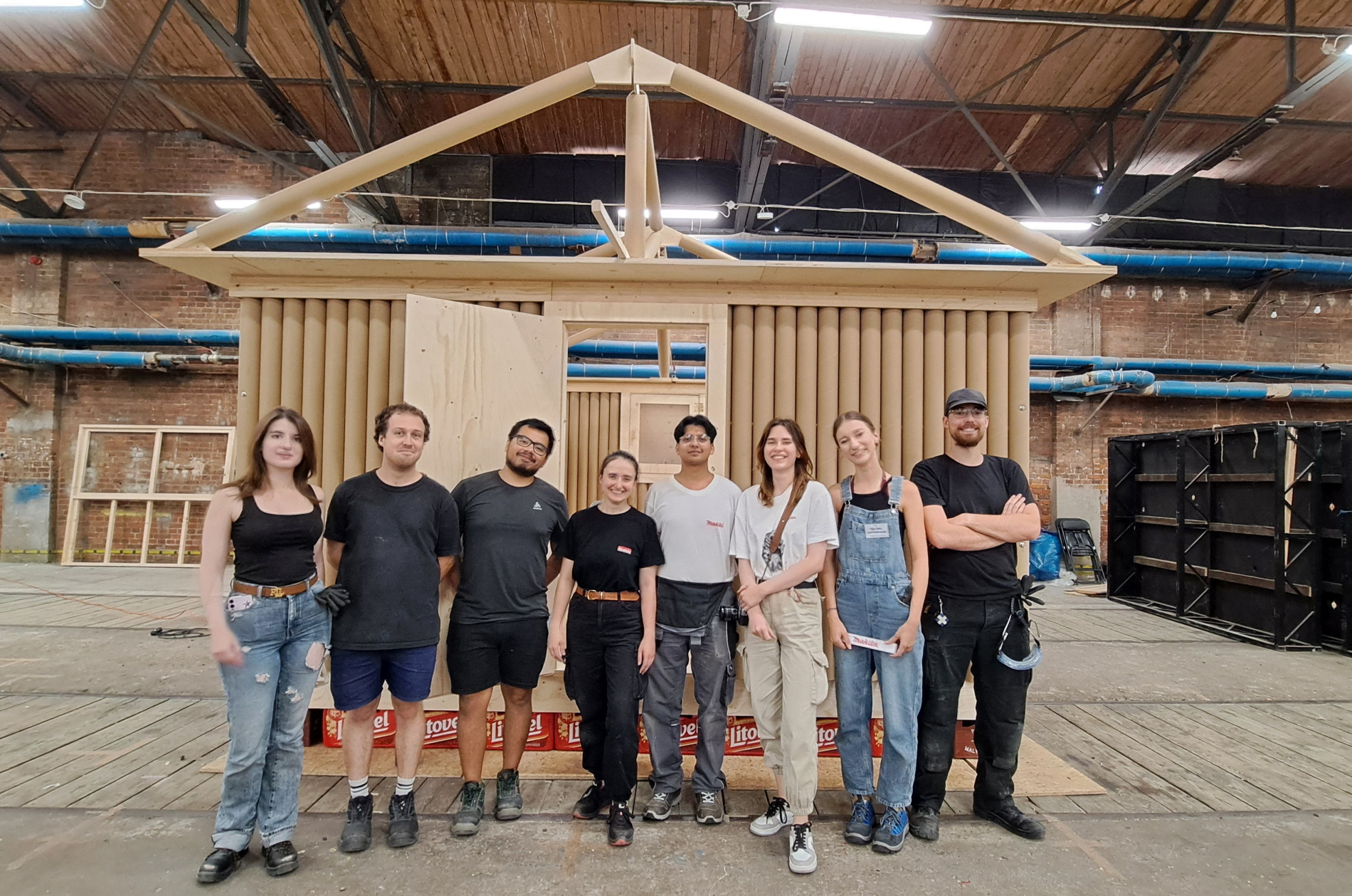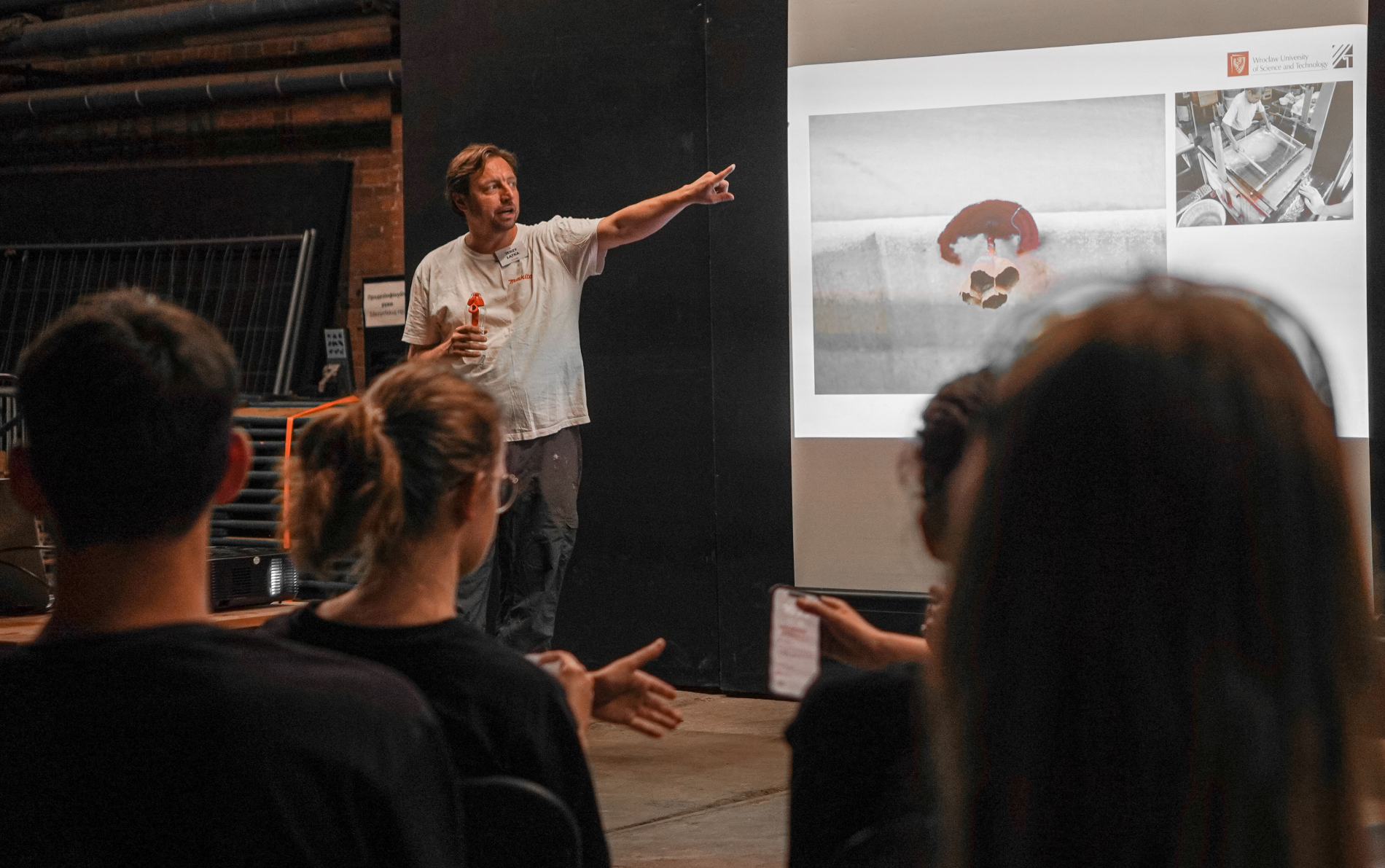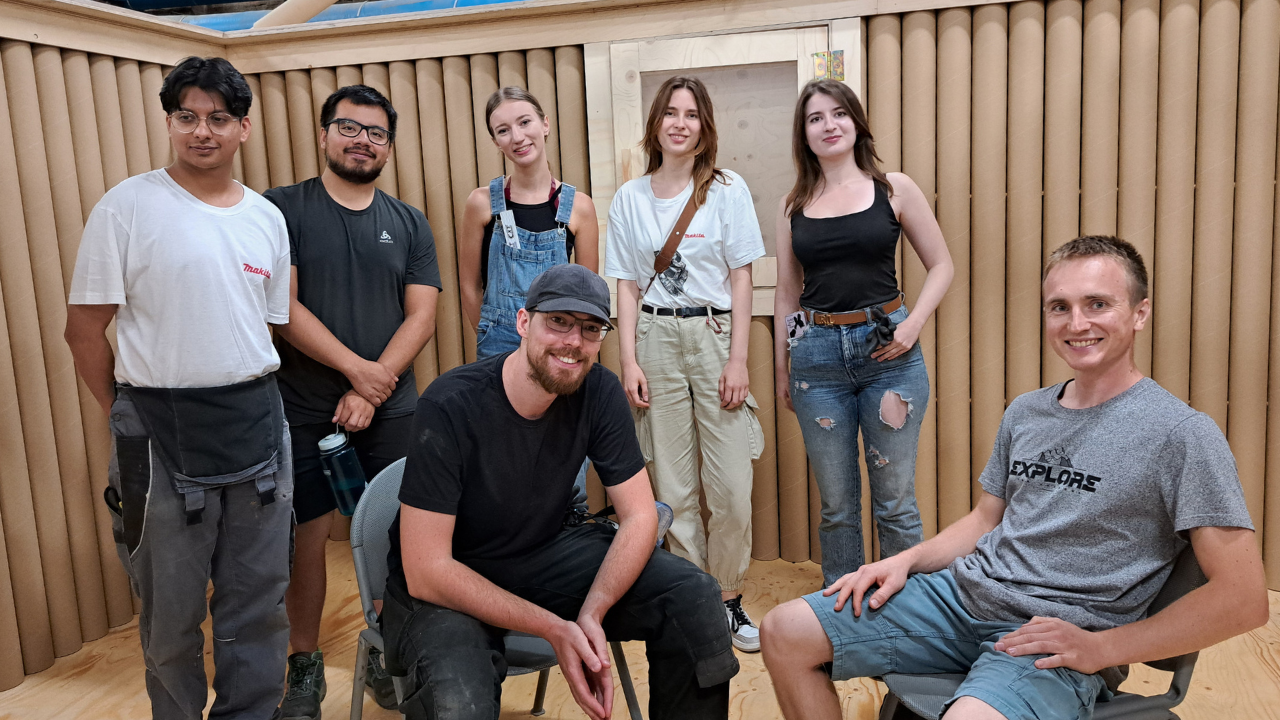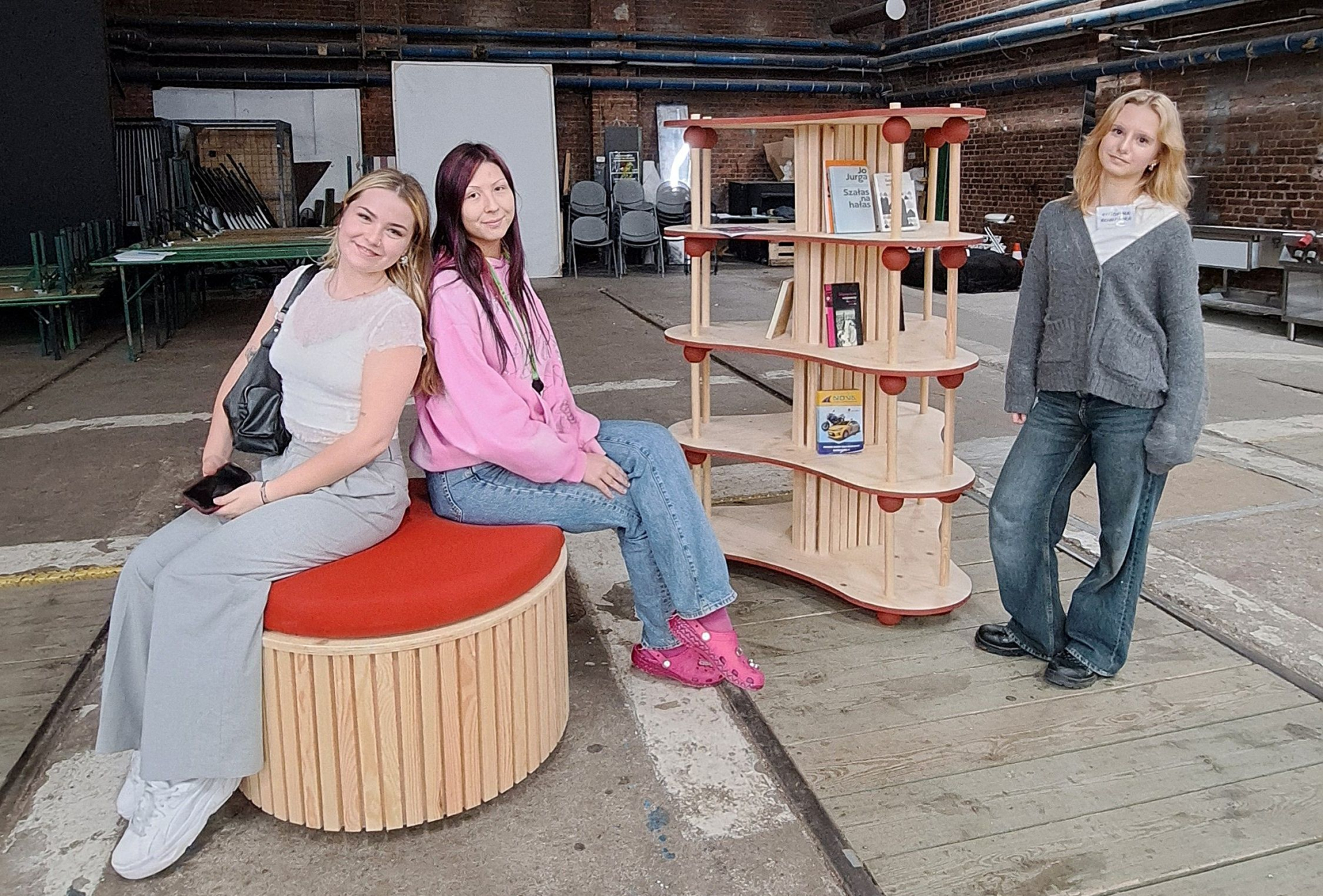YOUR BROWSER IS OUT-OF-DATE.
We have detected that you are using an outdated browser. Our service may not work properly for you. We recommend upgrading or switching to another browser.
Date: 31.07.2025 Category: general news, international cooperation, student activity

Seven unique designs of small architecture were created during the international ProtoLab 2025 workshop, created by students from five countries inspired by the work of Professor Shigeru Ban, the famous Japanese architect.
The Protolab 2025 workshop was attended by 56 students from Austria, Spain, Sweden, Germany, and Poland, including 25 from the Wrocław University of Technology. From 22 to 30 July in the “Time-Space”, they carried out design work under the guidance of their tutors.
Beforehand, they developed concepts for their ideas and attended lectures by specialists in architecture, construction, and modern production methods.
The slogan for ProtoLab 2025 was the Japanese word “KI” (木), meaning “tree”.
- The word has multiple meanings. On the one hand, it alludes to Japanese culture and language, on the other hand, it symbolises growth, development, and we believe that the new skills that students acquire in the workshops are like the fresh leaves, branches or fruit of a tree, explains Dr Eng. arch. Jerzy Łątka from the Faculty of Architecture, the main coordinator of the event. - The symbol is also a reference to the materials used for the various projects.
 Photo: Marcelina Ciesielska
Photo: Marcelina Ciesielska
A unique aspect of the workshop was the opportunity to work with eminent architect Professor Shigeru Ban (this year's Wrocław Tech honorary doctorate), whose two projects were recreated by ProtoLab participants.
- ‘We decided on the Paper Log House, a structure that was originally built in 1995 as a relief house after the Kobe earthquake, and a section of the Hualin Elementary School, a temporary school building created in 2008 after a similar disaster in Chengdu,’ - says Dr Jerzy Lątka. - "We reconstructed them according to Shigeru Ban's original drawings, which we adapted to our needs and capabilities.
Both projects will be transported to Krakow, where they will become part of an exhibition of Professor Shigeru Ban's work at the Manggha Museum of Japanese Art and Technology. Two further pavilions, which were created during the workshop, will also be transported to Krakow and displayed in front of the museum.
In addition, ProtoLab2025 has also produced: a new type of boat that can be disassembled into smaller parts, a soundproof attention capsule and bookcrossing furniture that will soon appear on the campus of Wrocław University of Science and Technology.
Paper Log House is Shigeru Ban's most famous project. This temporary help house, which - if necessary - anyone can build, consists mainly of paper sleeves and plywood.
- In fact, the most difficult moment was putting all the pieces together," - explains Małgorzata Lewoniuk, a student at the Faculty of Architecture at the Wrocław Tech and project leader. - The paper sleeves are connected by a metal element and we had to squeeze them very tightly to keep everything upright. We then had to fit the whole thing onto the frame that holds the roof. It was a process that took us a little longer than we anticipated." - adds student.

The project that was created in “Time-Space” does not have a roof for the time being, but this will soon change. - We will still put waterproof material on the roof construction, but we have to wait for it to be sewn, because it had to fit perfectly and we couldn't do it in one week of classes," explains Małgorzata Lewoniuk, who had people from many countries in her team.
- Sometimes it was complicated because English is not my natural language, but I focused on finding the strengths of the individuals and steering them in the right direction. I think this collaboration went really smoothly for us.
Three students from the Faculty of Architecture at Wrocław Tech and one from the Academy of Fine Arts in Wrocław, at the request of Dr. arch. Karolina Jaklewicz, professor at the university and vice-rector for community developmentt and integration, designed and made furniture for bookcrossing on our campus
- Working together on this project, we decided that an additional useful element would be a seating area, as we know from our research among colleagues that such spaces are still somewhat lacking,' says Antonina Kowalska, a student from the Urban Environment Humanisation Study Group.

Therefore, in addition to a wooden shelf on which books can be deposited, a special pouffe will stand next to it. Both pieces of furniture have been enhanced with elements in polytechnic red to attract the eye and thus the interest of the community.
- ‘The workshop gave me a lot because it was our first time and there was a bit of trepidation at first when we saw all the equipment and big machines,’ - says Antonia Kowalska. - However, thanks to the support of the mentors, everything went great and now we know what it feels like when something we have only seen before on a computer screen or in drawings takes shape and becomes real. It's a great feeling," - adds student.
Our site uses cookies. By continuing to browse the site you agree to our use of cookies in accordance with current browser settings. You can change at any time.